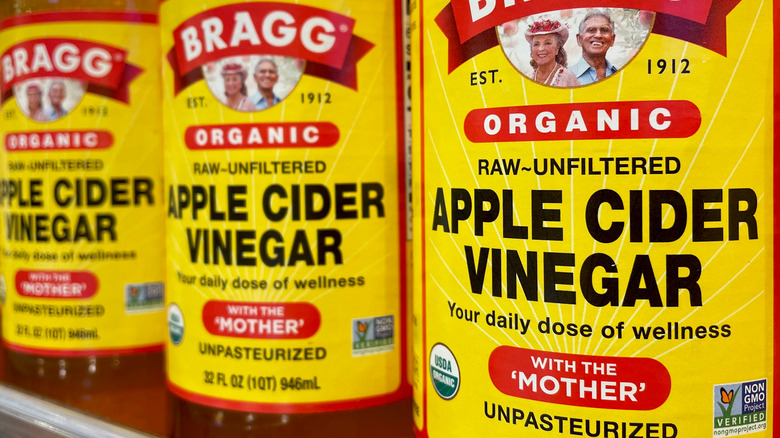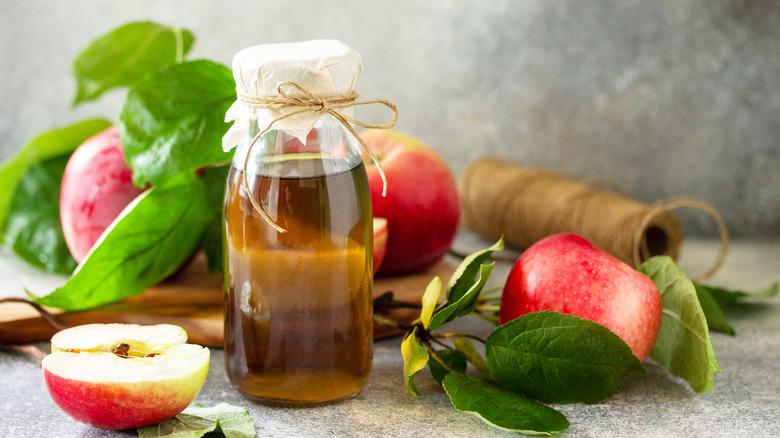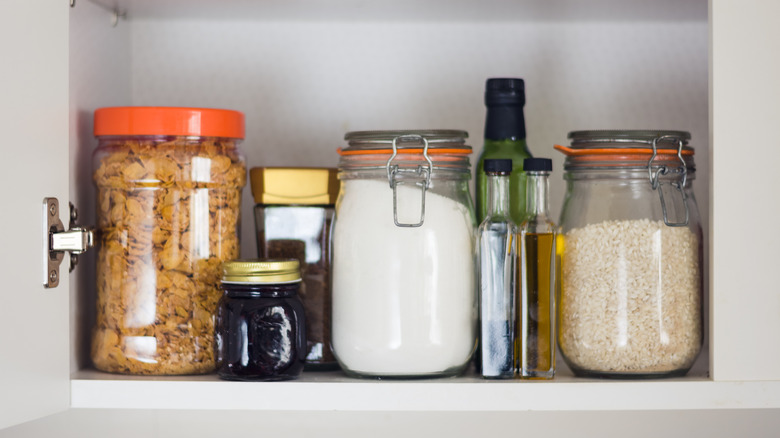How To Know If Vinegar Has Gone Bad
If you love collecting different vinegars for a variety of dishes and uses, you probably have a small stock pile in your pantry (via Real Simple). Maybe you don't exactly hoard vinegar, but it is also likely that you are not using your bottle everyday. Whatever the case may be, if you have vinegar that has been sitting on your shelf for a long time, you might be wondering if it is still good to use or if it has gone bad. It is perfect for both cleaning and cooking after all, so it'd be a shame for it to go to waste.
When you do your usual pantry and kitchen organization, it's natural to want to throw out old or expired foods and bottles of sauces or liquids. But before you throw your vinegar away, keep in mind how its natural properties may be more beneficial than you thought, even for itself. Thanks to a few aspects of vinegar, you might want to hold on to it just a little bit longer (via Kitchn).
The nature of vinegar
It is important to remember that vinegar is a fermented liquid. For apple cider vinegar, the process to create vinegar specifically consists of putting apples into water for the fermentation process which then creates ethanol (via Healthline). This ethanol becomes an acetic acid, and when it has a cloudy sediment, the vinegar contains "the mother" as it is called. This simply means it is unfiltered raw vinegar in its most natural state, and contains enzymes, proteins, and good bacteria.
Because of this process and natural form, vinegar has many antioxidant and harmful bacteria-killing properties. In fact, vinegar can be used to benefit many parts of the body such as aiding in weight loss and lowering both blood sugar and cholesterol levels. If you drink vinegar every day, you can really see a positive difference. Healthline also reports that apple cider vinegar can be used in your skincare routine and as a natural hair conditioner.
It's a versatile product that doesn't just have to be used for cooking and cleaning, and many of its properties also play a role in giving it the lifespan it tends to contain (via WebMD).
Has it gone bad?
The good news is that The Vinegar Institute says "vinegar's shelf life is almost indefinite." Its acid is actually what protects it in the long run, making it "self-preserving." Additionally, this also makes it so that you don't have to refrigerate vinegar at any point, whether new or opened. If you do see some changes, such as sediment build up forming at the bottom of the bottle, don't worry (via PureWow). This simply means the "mother" of the vinegar is beginning to form more visually. This does not mean it has gone bad, and it is, in fact, natural and safe when it happens.
While vinegar doesn't really expire, according to The Vinegar Institute, how you store it can only strengthen its durability and taste. In storage, make sure that it is out of direct sunlight. Furthermore, reduce its exposure to air by always making sure it is tightly closed. For the best flavor, it is also important to keep it in a glass bottle, which is usually what it comes in.


